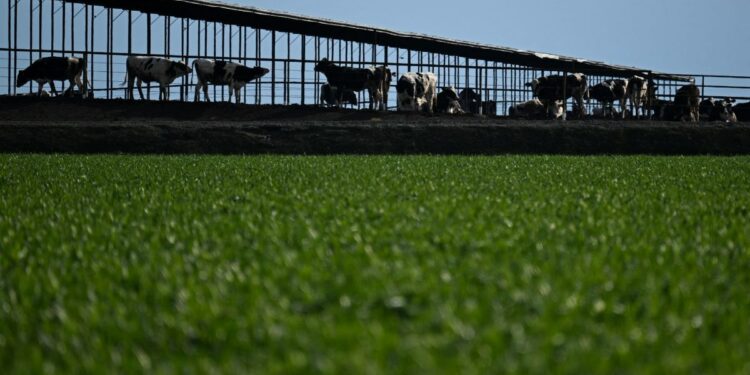Various culinary preferences, health regulations, and political barriers prevent Europe from importing many staple American foods, including beef from Texas, chicken from Kentucky, milk from Wisconsin, and wheat from Kansasread more
US President Donald Trump wants the European Union to buy more American-made cars, fossil fuels, weapons, medicines and most importantly food products. While the bloc is okay with procuring the first four goods from the US, it is picky about what it eats.
Earlier this month, Trump said, “They don’t take our farm products, they take almost nothing and we take everything from them … tremendous amounts of food and farm products,” as he complained about Washington’s €18 billion deficit in agri-food trade with Europe.
Various culinary preferences, health regulations, and political barriers prevent Europe from importing many staple American foods, including beef from Texas, chicken from Kentucky, milk from Wisconsin, and wheat from Kansas. Additionally, the newly appointed EU commissioners for agriculture and animal welfare, Christophe Hansen and Olivér Várhelyi, are pushing for stricter controls on agri-food imports.
Europe filling its plate with Brazilian grains
Things were not so dim during Trump’s first term when the US sold huge amounts of soybeans to Europe as production in Brazil and Argentina failed due to a bad harvest season, according to a report by Politico.
However, this time it won’t work in Washington’s favour. Europe is expected to import food grains from Brazil as the country reports record-level harvests this year.
The country’s total production is now estimated at 325.7 million tonnes, reflecting a 1.07 per cent increase from the January forecast and a 9.4 per cent growth compared to the 2023/24 harvest. Meanwhile, projections for soybeans, Brazil’s leading agribusiness crop, have seen minimal adjustments, standing at 166.1 million tonnes—just shy of January’s estimate of 166.3 million tonnes.
Different standards
The US and Europe have set different standards when it comes to food safety. Europeans remain resistant to US agricultural products like hormone-treated beef, chlorine-washed chicken, and genetically modified corn.
The key factor behind this reluctance is Brussels’ precautionary principle—a regulatory framework that demands proof of safety before a product can enter the market. In contrast, the US follows a risk-based approach, allowing products unless they are proven harmful.
Source link : http://www.bing.com/news/apiclick.aspx?ref=FexRss&aid=&tid=67bd81c234554fe7873f5f47db3b1ea8&url=https%3A%2F%2Fwww.firstpost.com%2Fworld%2Ftrump-wants-europe-to-buy-food-from-america-but-brazil-could-be-a-problem-13866482.html&c=1191705950630335307&mkt=en-us
Author :
Publish date : 2025-02-24 19:35:00
Copyright for syndicated content belongs to the linked Source.







